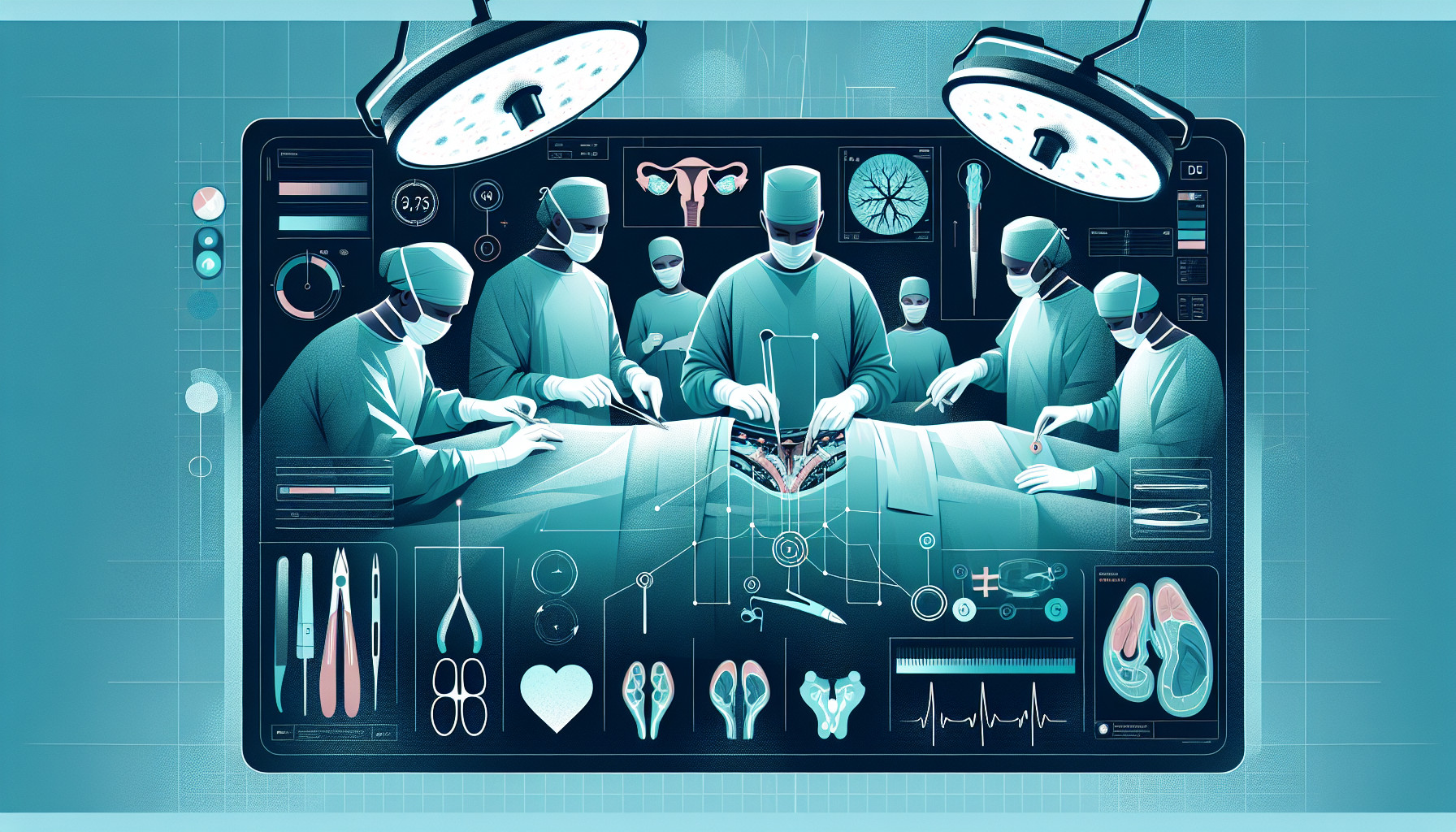Our Summary
This research paper is a study on single-incision laparoscopic surgery (SILs) - a method of performing surgery through one small cut instead of several, in pediatric patients. The researchers wanted to see if there was any difference between the outcomes of basic and advanced procedures of SILs and conventional laparoscopic surgery (CLs).
They looked back at surgeries performed at their institute from January 2017 to March 2020, collecting data on the type of surgery, any complications, and whether they had to switch to a different surgical method. They also reviewed published studies on these types of surgeries from 1985 to 2021.
They found that 227 patients had laparoscopic surgery during this period. The majority of these (87.7%) were basic surgeries (like appendectomies and hernia repairs), while a smaller number (13.3%) were advanced surgeries (like certain types of bowel surgery).
They found no significant differences in the time taken for the surgery, the length of hospital stay, the rate of having to switch to a different surgical method, or the rate of complications between the two types of surgery. However, patients who had SILs for gallbladder removal (cholecystectomy) or a certain type of cyst removal (choledochal cyst excision) had a slightly longer hospital stay.
In conclusion, they found that SILs is a feasible and safe method for pediatric surgeries, from basic to advanced procedures. There were no significant differences in various outcomes, but the length of hospital stay might be slightly longer in some procedures due to their complexity.
FAQs
- What is Single-Incision Laparoscopic Surgery (SILs) and how does it differ from Conventional Laparoscopic Surgery (CLs)?
- What were the main findings of the study on SILs and CLs performed on pediatric patients from January 2017 to March 2020?
- Did the study find any significant differences in the outcomes of SILs compared to CLs?
Doctor’s Tip
A helpful tip a doctor might tell a patient about testicular surgery is to follow all pre-operative instructions provided by the medical team, such as fasting before the surgery and avoiding certain medications. It is also important to communicate any concerns or questions with the surgical team and to follow post-operative care instructions carefully to aid in a smooth recovery process.
Suitable For
Overall, patients who are recommended testicular surgery may include those with testicular cancer, testicular torsion, testicular trauma, varicocele (enlarged veins in the scrotum), hydrocele (build-up of fluid around the testicle), and other conditions affecting the testicles. These patients may benefit from testicular surgery to address their specific condition and improve their quality of life. It is important for patients to consult with their healthcare provider to determine the most appropriate treatment plan for their individual situation.
Timeline
Before testicular surgery:
- Patient consults with a urologist and undergoes a physical examination.
- Patient may undergo imaging tests such as ultrasound or MRI to determine the extent of the issue.
- Patient receives information about the surgery, including risks and benefits, and gives informed consent.
- Patient may undergo pre-operative tests such as blood work and ECG.
- Patient is instructed on pre-operative preparations such as fasting and medication adjustments.
After testicular surgery:
- Patient is taken to the recovery room immediately after surgery for monitoring.
- Patient may experience pain and discomfort, which is managed with pain medication.
- Patient is monitored for any complications such as bleeding or infection.
- Patient may be discharged the same day or stay overnight in the hospital depending on the type of surgery and recovery.
- Patient is given instructions on post-operative care such as wound care, activity restrictions, and follow-up appointments.
- Patient may experience swelling, bruising, and temporary changes in function, which gradually improve over time.
- Patient follows up with the urologist for follow-up appointments and monitoring of the surgical site.
What to Ask Your Doctor
Some questions a patient should ask their doctor about testicular surgery could include:
- What type of testicular surgery do I need and why?
- What are the potential risks and complications associated with this surgery?
- What is the success rate of this type of surgery for my condition?
- How long will the surgery take and how long is the recovery time?
- Will I need to stay in the hospital overnight? If so, how long?
- Will I need any special follow-up care or medications after the surgery?
- Are there any alternative treatment options to consider?
- How often do you perform this type of surgery and what is your experience with it?
- What can I expect in terms of pain management after the surgery?
- Are there any long-term effects or changes in fertility that could result from this surgery?
Reference
Authors: Noitumyae J, Mahatharadol V, Niramis R. Journal: J Laparoendosc Adv Surg Tech A. 2022 Nov;32(11):1190-1202. doi: 10.1089/lap.2021.0869. Epub 2022 Jul 27. PMID: 35900259
